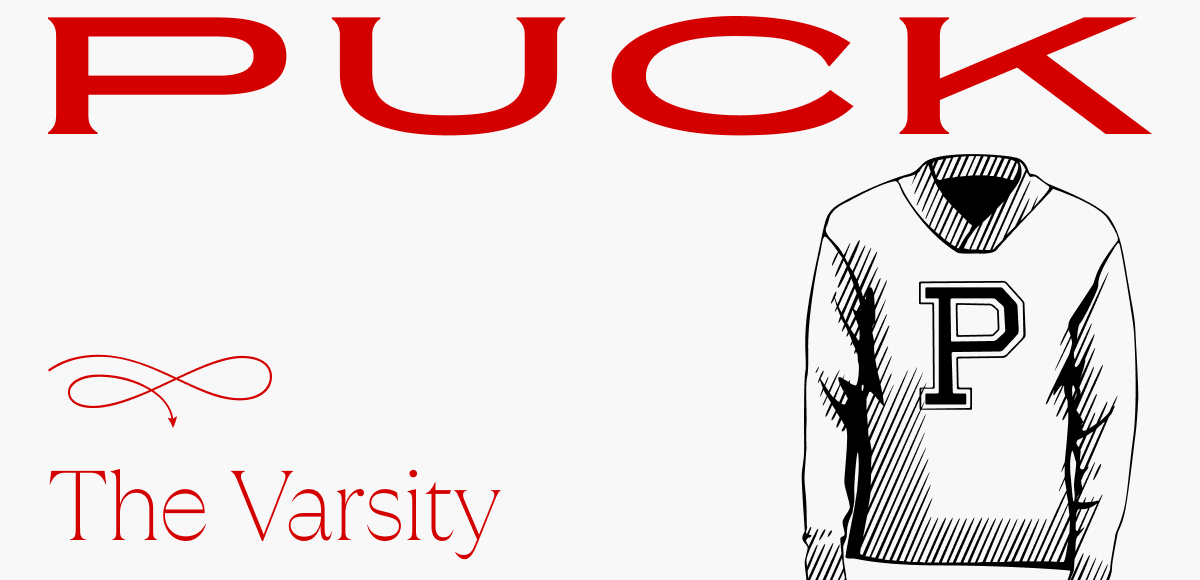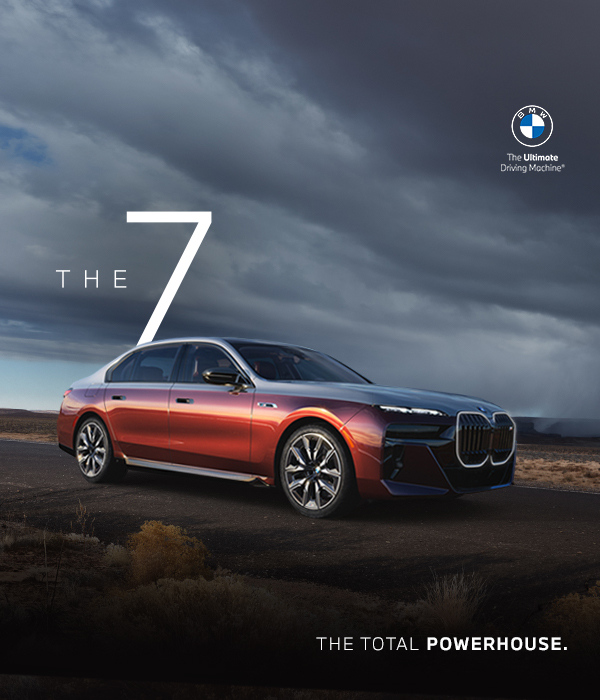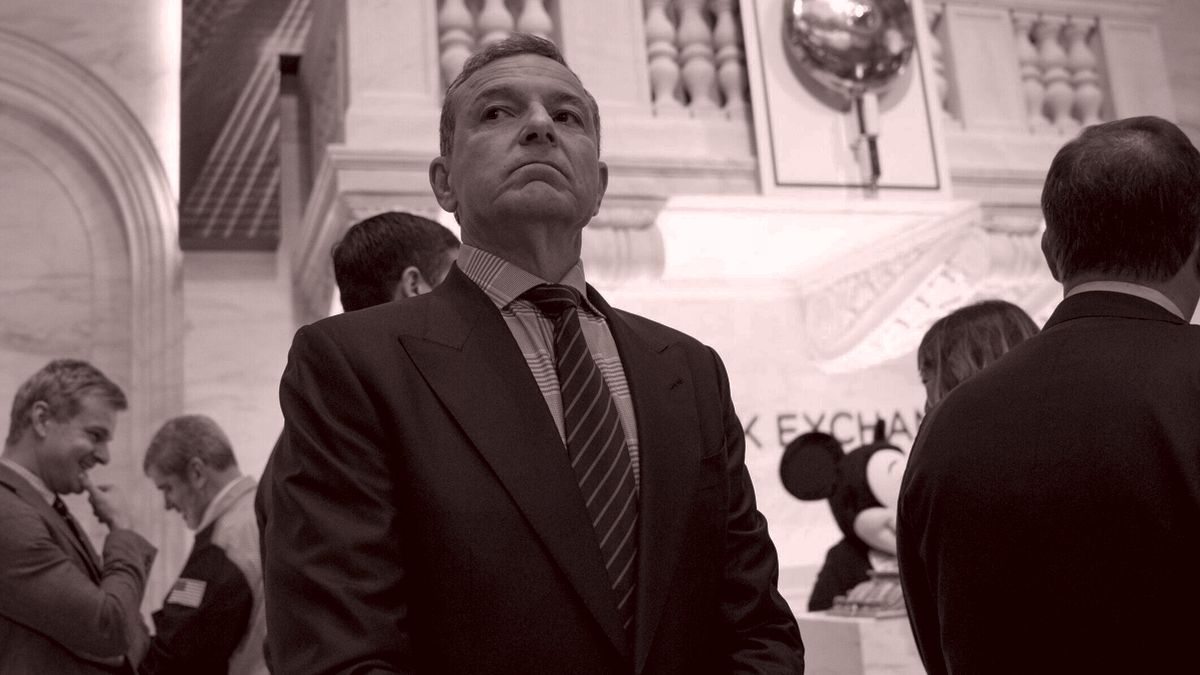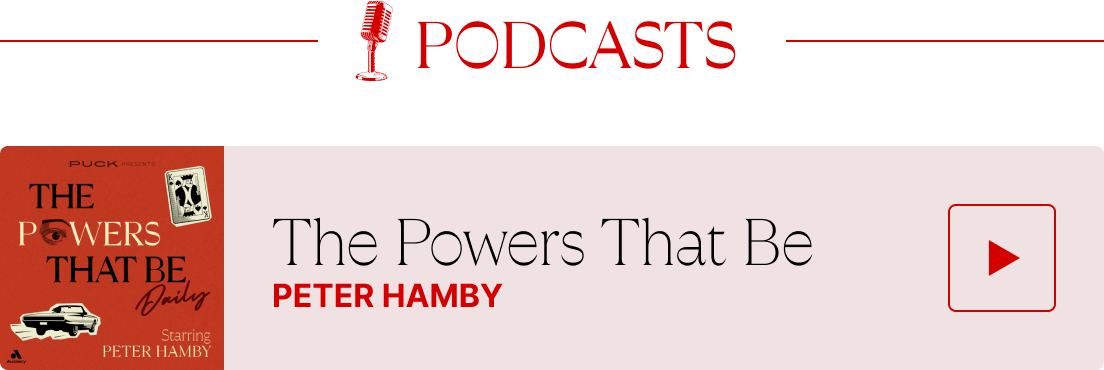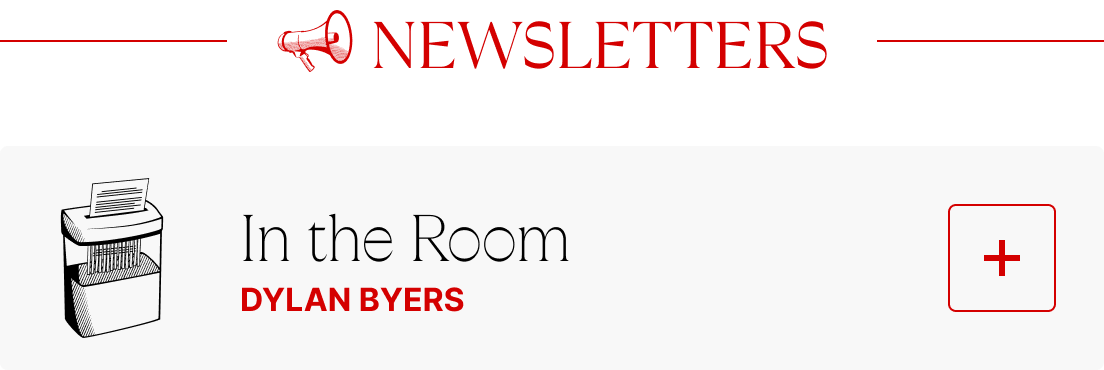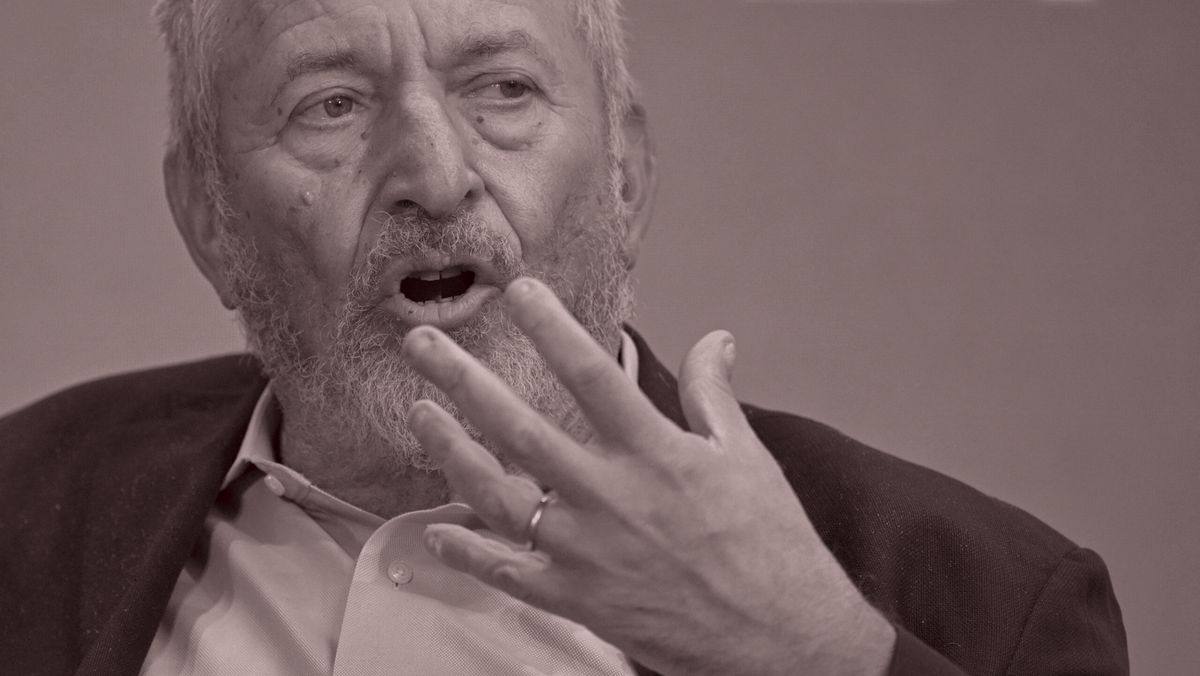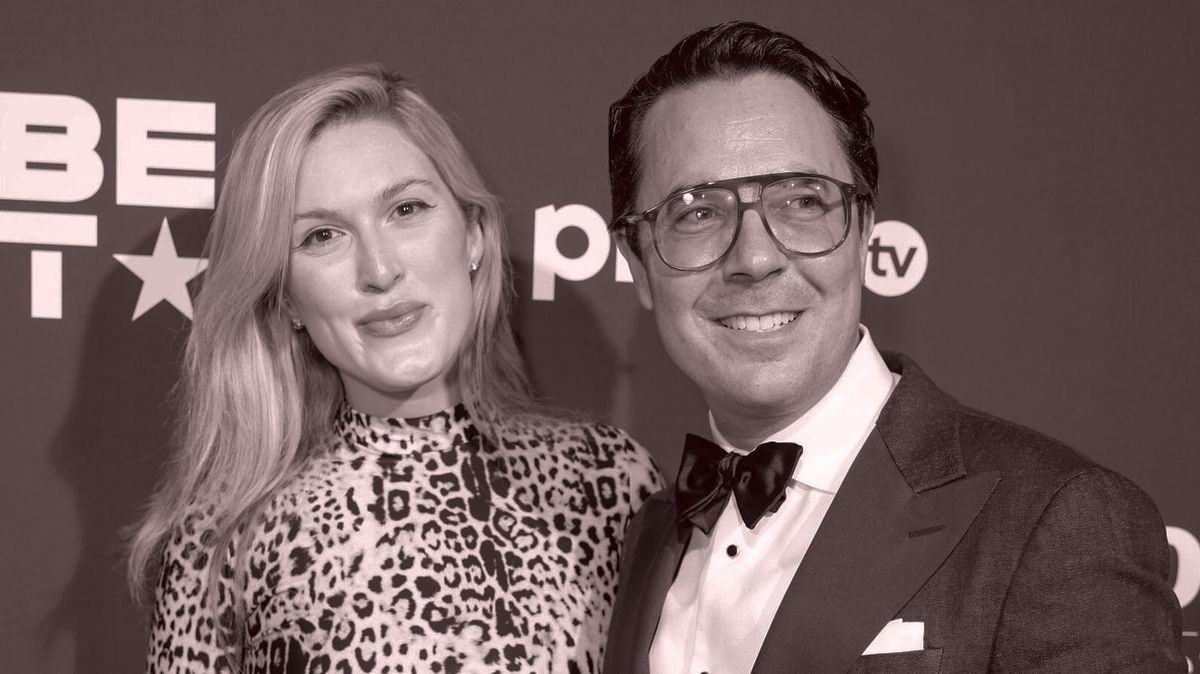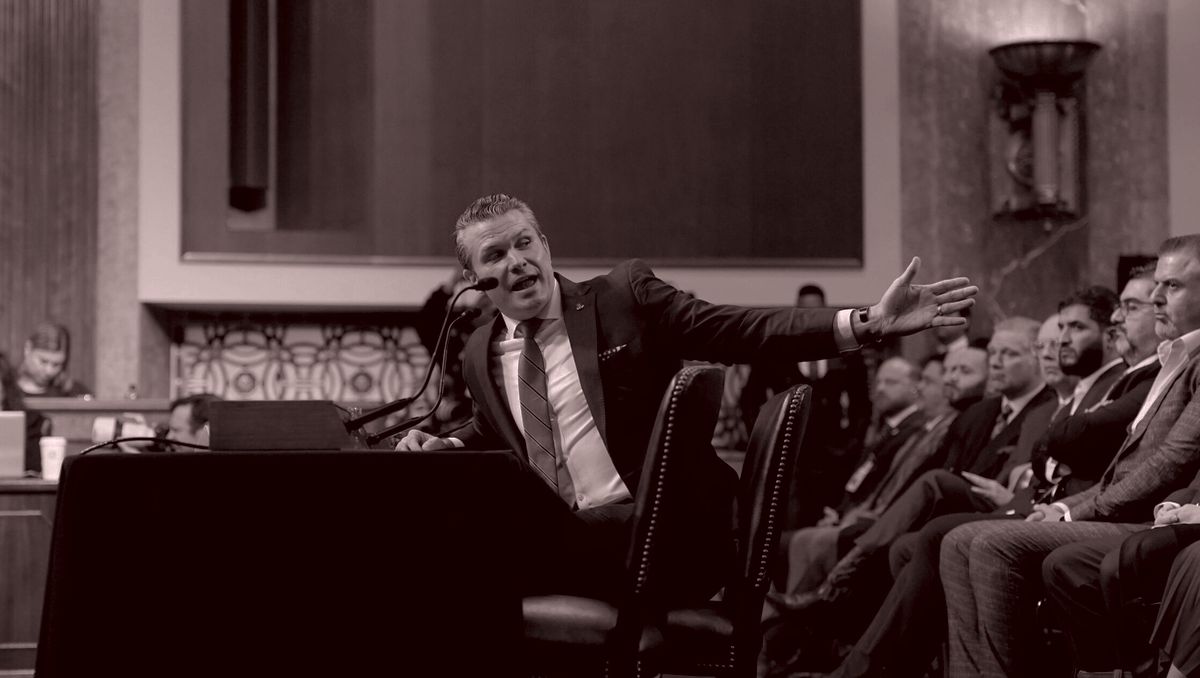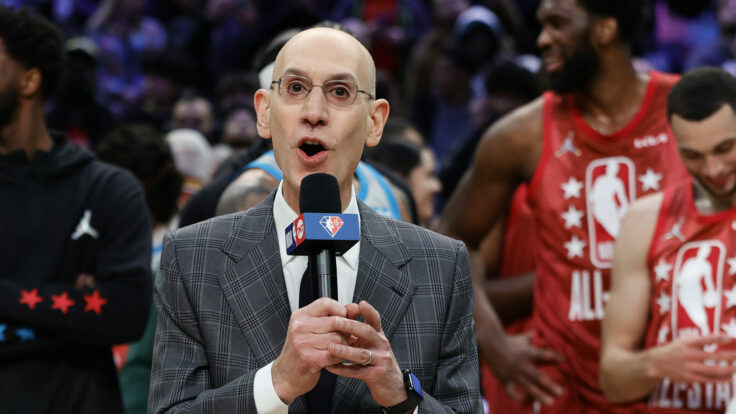Welcome back to The Varsity, our thrice-weekly private email
on the money, influence, and power behind the business of sports. I know most of you are fixated on the NFL Draft, and for good reason. But here in D.C., it’s all about Saturday’s White House Correspondents’ Association dinner. Per my annual tradition, I’m skipping the dinner, but I’ll hit the best parties tomorrow night with my Puck partners, including Dylan Byers. Maybe Dylan can tell you whether your contract is getting renewed. (Spoiler: Yes, but for less…)
🚨🚨 Pod alert: Fresh off his decision to leave MSNBC, Steve Kornacki, the newly minted chief data analyst for NBC News and Sports, will join the Varsity pod this weekend to walk through his career pivot and explain his onscreen roles for the Kentucky Derby, Super Bowl, Winter
Olympics, etcetera. Also, make sure you listen to my conversation with Pro Football Talk’s Mike “F’n” Florio, who dives into the antitrust challenges that the NFL continues to face. According to Mike, the Sunday Ticket saga is far more significant than you may have realized. Listen here and here.
Reminder: You need an Inner Circle membership if you want access to Julia Alexander’s Tuesday columns. Click here to upgrade! Otherwise, you
might want to start pricing out COBRA packages.
|
Player of
the Week: Mark Murphy
|
Murphy, the president and C.E.O. of the Green Bay Packers, and the
driving force behind Lambeau Field’s upgrades, is planning to retire in July after a 17-year run. And what better going-away party than the NFL Draft in Green Bay, which will allow the team to show off Titletown, the new real estate development surrounding Lambeau, to the 250,000 people slated to head to the Frozen Tundra this week. A former player and longtime executive, Murphy has been the steward of one of the most stable and successful franchises in sports during an exceptional run. This
week’s draft caps off a stellar NFL career.
|
Down to
the J.V.: Jimmy Pitaro
|
As the migration to streaming continues, ESPN’s C.E.O. decided that the network needed to double
down on needle movers—you know, Bristol-speak for AAA-level on-air talent. Sometimes, however, needle-movers move the needle too far. Earlier this month, ESPN caught flak when Pat McAfee helped spread a lewd and false rumor about an Ole Miss freshman—comments that could lead to a lawsuit. Then this week, another one of its on-air stars, Shannon Sharpe, was
accused of rape. (Sharpe denied the allegation on-air, calling the recently filed lawsuit a “shakedown,” but this afternoon announced that he would be stepping aside “temporarily” from ESPN. ESPN hasn’t
commented on McAfee, but said it agrees with Sharpe’s decision.)
|
|
|
A MESSAGE FROM OUR SPONSOR
|
Forever at the top of its game, the trailblazing BMW 7 Series. Engineered to win. Learn more at
BMWUSA.com
|
|
|
- Cord-cutting
realities: Here was, at least to me, the standout number from Comcast’s earnings call: The cable company lost another 427,000 video subscribers in the first quarter—not as bad as last year, sure, but worse than expectations. The business is shrinking by the day, and everyone is impacted—networks, leagues, teams, fans. As one media executive told me, “We all built billions in rights fees around a 100 million subscriber universe that’s now closer to 60 million.”
Yes, streamers
have been stepping in and keeping rights fees high for properties like the NBA and FIFA Women’s World Cup, but they are more rigorous than ever in analyzing the cost and benefits of various rights packages. Meanwhile, the cable TV system that has enriched sports leagues and teams for the past four decades continues to lose subscribers and revenue at a dizzying pace.
As NBA commissioner Adam Silver said earlier this week at Sports Business Journal’s annual World
Congress of Sports in Nashville, legacy media “is rapidly declining.” Silver described the league’s young fans as “cord-nevers,” which means that leagues like the NBA aren’t prioritizing cable TV like they once did.
- Are sports tariff-proof?: The SBJ confab provided a great chance to get executives’ perspective on how tariffs are impacting the industry. During the 2008 downturn, and the Covid crisis, almost all of these execs referred
to the sports business as recession-proof. This week was no different. “Sports is completely insulated, at least the sports I deal with,” said David Blitzer, the co-founder and managing partner of Harris Blitzer Sports & Entertainment. “As it relates to the core of the fan and the experience, I’m not stressed out about what’s going on out there.”
Arctos managing partner and co-founder Doc O’Connor was on the same page. “Even in severe economic distress,
like the 2008 global calamity, [the business of] sports continued to grow at a 7 percent rate,” he said. O’Connor cited proprietary research—the Ross-Arctos Sports Franchise Index—that showed a compounded growth rate of 13 percent over the last 60 years. “You’re looking at a very sustainable, robust, durable asset class that continues to appreciate even in very difficult, volatile times,” he said.
- The D.O.J. v. Disney: Things have been quiet in the
few days since my partner Eriq Gardner broke the news that the Department of Justice had launched an investigation into Disney’s acquisition of a controlling stake in Fubo. As Disney and Fubo respond to information requests, Eriq tells me he wouldn’t be surprised if there’s a big announcement from the D.O.J. sometime in the next three months—either a formal challenge to the deal, or some sort of settlement.
The likely outcome may be a remedy that addresses antitrust
concerns rather than unwinding the entire deal. The Justice Department could decide, for example, that Disney has to make a sports streaming bundle available to all other distributors. This sort of elegant solution might prompt the D.O.J. and Disney to negotiate a consent decree. I’ll be keeping an eye on this one, as will Eriq.
- The NFL’s antitrust concerns: Last summer, a California jury ruled that the NFL’s Sunday Ticket package violated
antitrust laws and awarded the plaintiffs $4.8 billion—a staggering penalty, even for the deep-pocketed NFL. A few weeks later, a federal judge wiped away that massive verdict, ruling that the damages were based on flawed economic methodologies (the case is now on appeal). But the antitrust allegations remain, and they still represent a real threat to the NFL.
Speaking on the Varsity podcast, Pro Football Talk’s Mike Florio told me, “There’s no compelling argument
against the jury’s finding that the Sunday Ticket product, and the way the NFL markets it, and the way that they want it to be priced in order to protect Sunday afternoon games on CBS and Fox, was a clear antitrust violation. … That Sunday Ticket antitrust case really is stronger than people realize, because the whole thing is marketed as, If you live in Pittsburgh and you want to watch Bears games, this is your way to do it. So how do I just get the Bears games? You can’t. You’ve
got to buy the whole thing for the entire season.”
- R.I.P. Mike Patrick: Mike Patrick never seemed to get as much recognition as other ESPN originals like Chris Berman or Bob Ley. But his tenure was just as impactful in Bristol, where he was the main play-by-play voice for Sunday Night Football for 18 years, and called more than 30 ACC basketball championships. Patrick provided the
soundtrack to some of the most memorable plays for people like me, who grew up in D.C.—like this Len Bias dunk or this 2004 ACC Championship game. And who could forget this
2007 clip, where he fretted about Britney Spears’ career during a particularly tense moment of an Alabama–Georgia football game? Holy cow!
|
Now, on to the main event…
|
|
|
In a fairly candid set of remarks, Bob Iger laid out an expressly lucid vision
for Flagship—not only the product, but also the true stakes of its mission.
|
|
|
“Younger audiences today are gravitating to new platforms,” Bob Iger
said from the stage Tuesday afternoon at SBJ’s annual World Congress of Sports conference in Nashville, slightly reframing a tectonic and still-ongoing behavioral shift as some sort of recent industry epiphany. “They like bite-size entertainment.”
Iger, who was joined onstage by ESPN chairman Jimmy Pitaro, seemed to be, in a way, putting a new spin on the
purpose of Flagship, the brand’s infinitely hyped and hotly anticipated new streaming product. So much of the discourse around Flagship, of course, has focused on the panoply of sports assets it will offer—all of ESPN’s top rights packages, from Monday Night Football to the College Football Playoff and NCAA women’s sports, etcetera.
And yet, Iger was conceding that his new baby also really needs to resemble the stuff that kids really
watch these days—YouTube, TikTok, and Instagram Reels. At least in that regard, his comments were a revelation. For the better part of a decade, after all, media executives have been scratching their heads over the consumer habits of a generation that prefers highlights (and micro-wagering and fantasy sports) to full games, and has the attention span of a gnat in high heat. But Iger, at least, seems to get it, and he’s not trying to chastise younger fans for not consuming sports like their
parents did.
Indeed, while live games from MNF and the CFP are crucially important to the success of Flagship, which Pitaro has called the biggest transition in ESPN’s history, the company needs more than games if it wants to coax sports fans into using the app on a regular basis. Flagship will index heavily, they affirmed, on highlights, fantasy, and ESPN Bet when it launches this fall. But it
also needs to hook the TikTok and Reels generation. Iger pointed out that ESPN has a big presence on those social platforms, despite the network’s initial wariness about creating content for apps beyond its owned and operated properties.
As ESPN pushed deeper into the direct-to-consumer world, these once sacred cows were slaughtered at the altar. In fact, the network has fully embraced the marketing opportunities that those platforms provide. To wit: ESPN signed
deals to allow top stars like Stephen A. Smith and Pat McAfee to appear more credibly and organically on other platforms. “One of the things I love about the [D.T.C.] product to come, is that we will build into that elements that will be tailor-made for young generations of sports fans,” Iger said. “They like multiscreen experiences.”
|
|
|
A MESSAGE FROM OUR SPONSOR
|
Forever at the top of its game, the trailblazing BMW 7 Series. Engineered to win. Learn more at
BMWUSA.com
|
|
|
The idea, according to Iger, is to give younger fans more personalization, including multiple
screens and camera angles. “Young audiences want a little bit more control, and technology gives them a little bit more authority to exercise the control,” he said. “Streaming and the technology behind it will enable that.” Pitaro, for this part, said that the company also plans to enhance the current ESPN app this fall, rather than launching a new one. He said he’s most focused on personalization, customization, and the integration of fantasy and betting—all leading, he hopes, to a personalized
SportsCenter with more statistics.
|
As Iger spoke of this generational pivot, he also emphasized that he isn’t going
to ignore the old guys, noting that ESPN’s traditional linear channels (which remain profitable) will still be around. “There’s value, but it’s much more driven by serving the sports fan that is going to stay in the bundle, either because it’s comfortable for them, or they’re just not interested in becoming streaming customers,” Iger said. “I like the fact that we remain loyal to them.”
For what it’s
worth, he was refreshingly candid about the true stakes at play. “By the same token, if we’re not fishing where the younger fish are, ultimately, we lose our business,” he continued. “So leaning heavily now into the digital space—where we know a lot more people are going—is critical to serving those fans.” Iger won’t be around for much of the Flagship journey, but it’s clear that he agrees with Pitaro about its profound, make-or-break significance.
Yes, in theory,
Iger’s plan sounds great, and his sangfroid is rare. And the industry has known for some time that he and Pitaro envisioned less of a media rights superstore and more of an Amazon-style first screen for sports video experiences. But the ESPN app faces several challenges, as LightShed Partners’ Rich Greenfield said in a research note yesterday. “They effectively are trying to [build] the modern day version of SportsCenter that now lives on TikTok, Reels,
YouTube and X into ESPN’s app itself,” he wrote. “Changing consumer behavior … by moving short-form consumption from the tech giants into ESPN is no easy task.”
|
On all those WrestleMania ads: “WrestleMania used to be an event which
cost an additional $59.99 on top of an existing, fat legacy cable subscription (in early 2000s dollars). Now, WrestleMania is available to the widest audience in company history at the lowest barrier to entry, just $7.99. We take the wider availability, and accept the extra advertising.” —A Varsity subscriber
On building community in sports: “It’s funny to look back and think that both
the Giants and White Sox threatened to move to Tampa before they got new ballparks. The Giants play in one of the best venues in MLB, and I’d put money on the White Sox getting another new stadium built before Tampa does.” —A Varsity subscriber
On the NBA playoffs: “The end of NBA playoff games on NBA TV can’t come soon enough. I can’t even watch tonight’s Clippers-Nuggets game—it is blacked out in Los Angeles. Do I really have to go to a sports bar
to watch it? That is so depressing.” —A Varsity subscriber
|
Have a great weekend,
John
|
|
|
Join Emmy Award-winning journalist Peter Hamby, along with the team of expert journalists at Puck, as they let you
in on the conversations insiders are having across the four corners of power in America: Wall Street, Washington, Silicon Valley, and Hollywood. Presented in partnership with Audacy, new episodes publish daily, Monday through Friday.
|
|
|
Ace media reporter Dylan Byers brings readers into the C-suite as he chronicles the biggest stories in the industry:
the future of cable news in the streaming era, the transformation of legacy publishers, the tech giants remaking the market, and all the egos involved.
|
|
|
Need help? Review our FAQ page or contact us for assistance. For brand partnerships, email ads@puck.news.
You received this email because you signed up to receive emails from Puck, or as part of your Puck account associated with . To stop receiving this newsletter and/or manage all your email preferences, click here.
|
Puck is published by Heat Media LLC. 107 Greenwich St, New York, NY 10006
|
|
|
|
